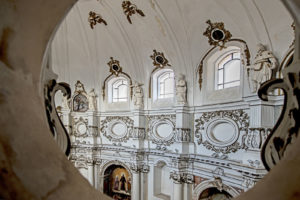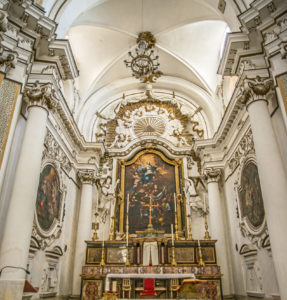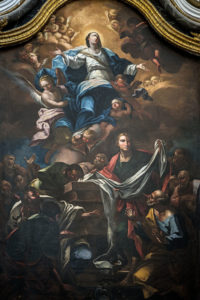Once inside the church, the compactness and simplicity of the exterior give way to the elegance and refinement of the interior. The space is perfectly divided between the entrance, an oval-shaped room reserved for worshippers, and the altar area. The main feature, however, is the decoration on the walls. On a white background, like a sheet of drawing paper,
Rosario Gagliardi
designed a surprising decoration in golden
stucco
created by Onofrio Russo.
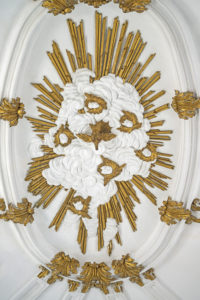
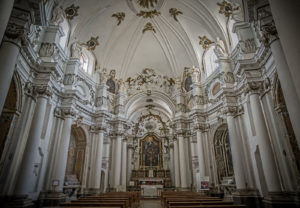
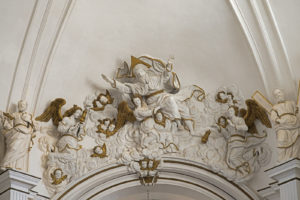
The wall seems to come to life and the protruding architectural elements make it appear to be moving back and forth. Such vitality is given by the free-standing columns, the
trabeation
, the statues and the full and empty effect given by the tondos and large windows under the vault.
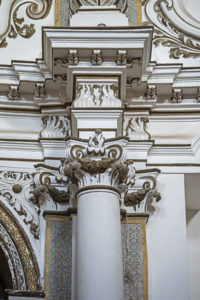
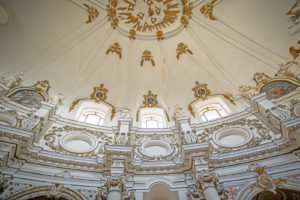
This is the result of a clear design where its artist, Rosario Gagliardi, pictured the church as a theatre witnessing the
Assumption of the Virgin Mary
.
The twelve apostles participate in this magical atmosphere, positioned high up between one window and another, ready to witness the miracle. The scene of the Assumption also features in the painting on the main altar; the Benedictine nuns dedicated the church of Santa Chiara to it.
